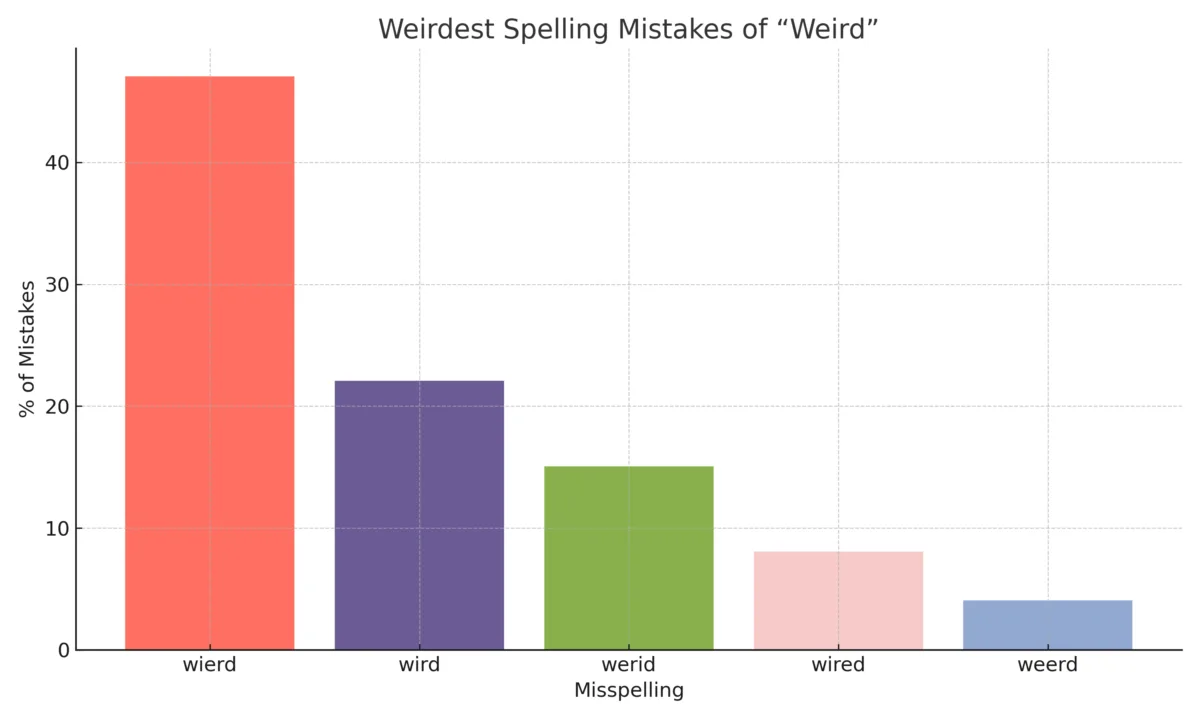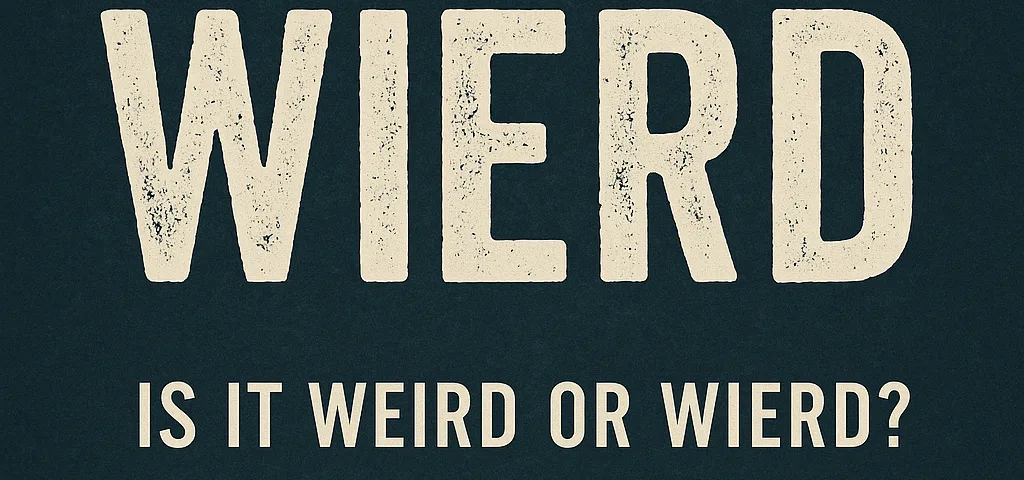
What to Pack for Europe Trip: A Realistic Guide for All Seasons
July 12, 2025
Solo Leveling Season 3: What We Know So Far (Spoiler-Free)
July 12, 2025Updated: July 2025
Let’s answer this fast because that’s probably what you Googled: it’s spelled weird, not wierd. That’s right—w-e-i-r-d. Even though “i before e except after c” is burned into our brains from grade school, weird proudly breaks the rule. And that, honestly, is what makes it a little… weird.
So now that you’ve got your answer (kind of), let’s talk about why it’s spelled that way, why it gets confused so often, and why the word weird is actually weirder than you think.
Weird Meaning: What Does Weird Mean Anyway?
Before it meant “strange” or “odd,” weird had a mystical flair. Its original meaning, from Old English wyrd, was all about fate or destiny. Think: Shakespeare’s Weird Sisters in Macbeth, predicting doom and gloom. Back then, calling someone weird didn’t mean they wore mismatched socks it meant they might control your fate.
Over the centuries, the spooky supernatural vibes faded, and weird meaning shifted to something more like: unusual, odd, or difficult to explain. Today, if your cat prefers cucumbers to tuna, you call that weird – not fateful (probably).
Wierd or Weird: Why Do So Many People Spell It Wrong?
Blame it on the English language. Most of us learned the rule: *i before e, except after *c. And most of us never questioned it – until we started spelling weird as wierd. Turns out, that rule has more exceptions than followers.
Let’s break down the usual suspects:
- wierd ❌
- werid ❌
- wird ❌
- weird ✅ (yes!)
Confused yet? You’re not alone. Search engines get flooded with queries like:
- how to spell weird
- spell weird correctly
- is it weird or wierd?
- weird spelling mistakes
- weird definition
- weird etymology
So if you’ve ever typed “werid” and trusted autocorrect to fix it, no judgment here.
Spell Weird Correctly (Without Thinking Twice)
Here’s a tip that actually works:
Just remember: “We are in weird times” — the first letters spell W-E-I-R-D.
Or, if you’re the visual type, imagine a duck named Weir D. Weird? Yes. Memorable? Absolutely.
Once you lock in that spelling, you’ll never question it again. Spell weird, not wierd. And definitely not werid. Please.
Weird Definition (Modern Edition)
According to modern dictionaries, weird means:
- Strange or bizarre: “He wore a weird hat made of spoons.”
- Unnatural or uncanny: “That silence felt weird after so much noise.”
- Supernatural or mystical (rare): “A weird vision overcame her.”
So if you’re asking what does weird mean, there you go: a mix of odd, eerie, and just plain… out there.
Weird in a Sentence (Because It’s Weirdly Useful)
- “It’s weird how dogs hate vacuums but love leaf blowers.”
- “That’s the weirdest excuse I’ve ever heard for missing work.”
- “Is it weird that I enjoy pineapple on pizza?”
(Answer: no. Pizza is a safe space. Sorry my fellow Italians.)
Weirdest Spelling Mistakes (Yes, We Ranked Them)
According to grammar tools like Ginger and Grammarly, weird is one of the most misspelled common words. Here’s what users type:
| Misspelling | % of Mistakes |
|---|---|
| wierd | 47% |
| wird | 22% |
| werid | 15% |
| wired | 8% |
| weerd | 4% |
So if you’ve done it, congrats—you’re in a very large club.

Weird Etymology: The Strange Origins of Weird
Let’s go deeper. The word weird is traced back to Proto-Germanic wurdiz, related to “turning” or “becoming.” In Old Norse, it was urðr, as in the force that shapes your destiny.
Even after the mystical meanings faded, weird kept a kind of magic. It’s a word that stands out—bold, rule-breaking, and memorable. Kind of like the people who love using it.
Weird Objects & Wierd Things (Yes, That’s a Section Title)
Now that we’ve covered spelling, let’s just celebrate weird for what it is: a gateway to the wonderfully bizarre.
Some truly weird objects include:
- Banana-shaped phones
- Pet rocks (a 70s sensation)
- Forks with built-in fans (Google it, I dare you)
- Books that can only be read with 3D glasses
These wierd things are reminders that life is too short to be boring and yes, sometimes they help boost your vocabulary.
Wierd FAQs: Because Weird Questions Deserve Answers
Q: Is it weird or wierd?
A: It’s weird, always. Wierd is a misspelling. Spell weird correctly to avoid weird looks.
Q: Why does weird break the spelling rule?
A: Because English loves to betray its own rules. The “i before e” rhyme has dozens of exceptions—weird just happens to be the most famous one.
Q: Can weird still mean ‘fate’?
A: In historical or literary use, yes. Shakespeare’s Weird Sisters meant “Fate Sisters.”
Q: How do I remember the correct spelling of weird?
A: “We are in weird times” = W-E-I-R-D. Or just remember Weird Duck.
Q: What’s the weirdest misspelling of weird you’ve seen?
A: Werid. Wierdd. Even Weeeeird. Honestly, we’ve seen them all.
Final Thoughts: Embrace the Weird (and Spell It Right)
Weird is one of those rare words that’s fun to say, useful in every conversation, and has a spooky-cool backstory. Whether you’re texting, writing essays, or labeling your TikTok videos, now you know how to spell weird, define weird, use weird in a sentence, and explore weird objects.
And if someone ever corrects you for spelling it wierd, thank them. You’re learning. And that’s never weird.




